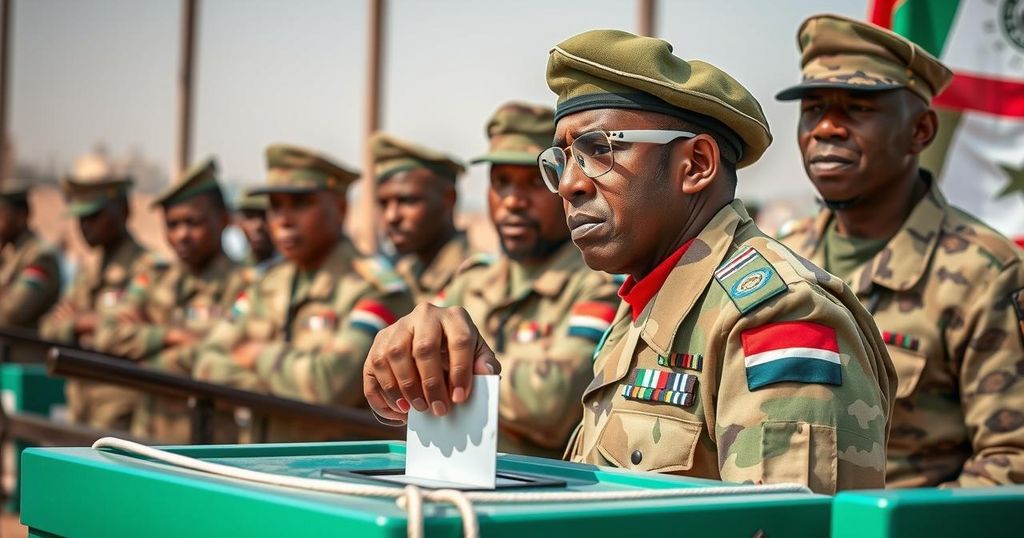Chad’s Parliamentary Elections: A Controversial Step Towards Democracy Amid Opposition Boycott

Chadians voted in parliamentary elections marked by a boycott from major opposition parties, following a three-year military transition. This election, the first in over a decade, aims to establish a democratic foundation after contentious political circumstances, including a disputed presidential vote. With over 10 parties refusing to participate, concerns over electoral credibility loom large.
Chadians participated in parliamentary and regional elections aimed at concluding a three-year transitional period of military governance; however, the main opposition parties chose to boycott the election, claiming the process lacked credibility and fairness. This electoral event marks the first parliamentary elections in over a decade, following Mahamat Idriss Déby’s contentious presidential victory held several months prior, which was intended to initiate a return to democratic rule.
The election is particularly significant for Chad, a nation of approximately 18 million people, as it attempts to transition from decades of unchallenged leadership following independence from France in 1960. This year’s elections are a critical landmark for the Sahel region, as they represent one of the first returns to democracy under a junta’s oversight. Approximately 8 million voters are registered to select 188 legislators for the new National Assembly, along with local representatives; the results are anticipated in approximately two weeks.
The opposition, including over ten parties and notably the Transformers party led by Succes Masra, have labeled the elections a sham. Masra, who previously served as prime minister, publicly stated that he believes the election results will be manipulated, advising voters to abstain from participating. Opposition spokespeople argued that endorsing the elections would imply acceptance of a coercive regime seeking legitimacy under the guise of democracy.
As Chad navigates not only political transitions but also security threats, including issues stemming from Boko Haram in the Lake Chad region and changing relations with France, the integrity of these elections is paramount. Experts have emphasized that the primary concern relates to the preservation of democracy during this transitional phase, which began in 2021 with aims of establishing a more stable governance framework.
Political scientist Mahamat Oumar Adam highlighted the significance of the upcoming actions to solidify the exit from military rule, while noting the considerable absence of opposition participation that diminishes the electoral process’s legitimacy.
The situation in Chad reflects a tenuous balance of power following a prolonged period of military rule. The current transition period, initiated after the death of long-serving President Idriss Déby Itno in 2021, is viewed as a crucial moment for Chad as it seeks to overcome decades of autocratic governance. This electoral cycle represents a significant step towards restoring a democratic framework, with observers keenly watching the developments amidst opposition boycotts and allegations of voting irregularities. The political landscape in Chad is also clouded by ongoing security issues and complex international relations, particularly with France, historically a vital ally.
In conclusion, the parliamentary and regional elections in Chad are a pivotal moment in the country’s ongoing shift from military governance to democratic rule. Despite the government’s efforts to move forward, the boycott by major opposition parties raises concerns regarding the elections’ legitimacy. As Chad grapples with both political and security challenges, the implications of this electoral process could substantially shape the country’s future governance and stability.
Original Source: abcnews.go.com







